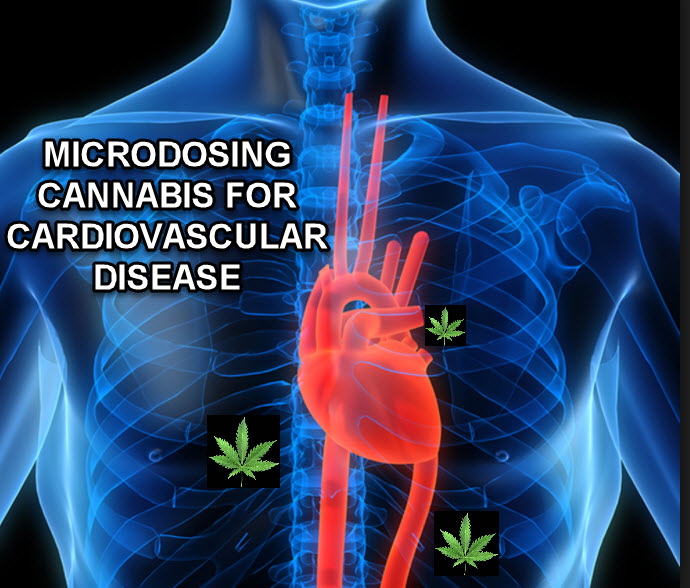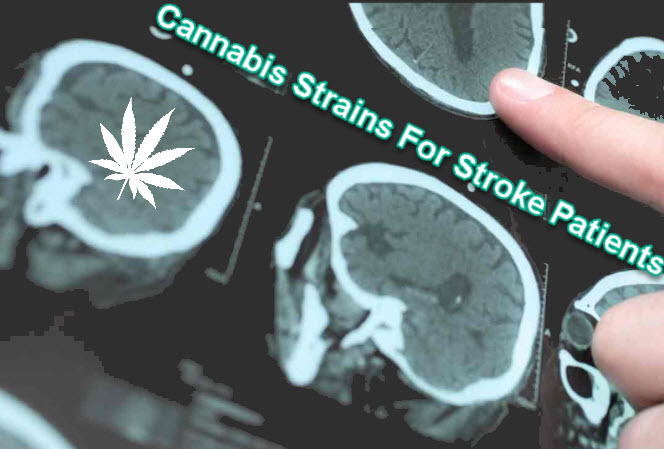Can Cannabis Help Prevent Strokes?
New study shows that chronic cannabis users have better heart health and reduced risk for strokes.
Despite the incessant myths from prohibitionists claiming that cannabis is bad for the heart, research and science continues to debunk these claims. A recent study conducted by the University of Texas at Dallas discovered that cannabis actually contributes to an improvement in blood and oxygen flow to the brain, which reduces blood cloths that cause a brain attack.
The researchers even found that chronic cannabis smokers have the most efficient brain blood flow in all the participants, which points to a reduced risk for stroke. The findings support previous studies showing that cannabis has a positive effect on memory function. “Past marijuana research has shown changes in cognitive functions such as memory and executive functioning,” says lead author Dr. Francesca Filbey, who is also the director of Cognitive Neuroscience in Addictive Disorders at the Center for BrainHealth. “Our study seems to understand the possible neurophysiological mechanisms that may drive these cognitive changes.”
THC, the cannabinoid responsible for the psychoactive effect in cannabis, can relax the blood vessels and improve blood circulation in the brain. Dr. Filbey’s team focused on the impact of prolonged THC use on blood flow in the brain by analyzing differences in brain blood circulation as well as metabolism among a group of 74 chronic cannabis smokers and 101 non-users for 2 months.
All of the cannabis users reported using the plant at least 5,000 times over their lifetime and using it daily for 60 days until the study began. However, they were required to stop using cannabis 72 hours before the study to eliminate any acute effects. They were asked to undergo magnetic resonance imaging, while urinalysis was used to measure THC metabolite levels. Dr. Filbey and her team of researchers discovered that cannabis users had higher global oxygen extraction fraction and cerebral metabolic rate of oxygen compared to non users, which were shown to increase the more cannabis the users consumed. The researchers also discovered that blood flow in an area of the brain that is associated with reward mechanisms, habits, and learning, called the putamen, was greater among cannabis users than nonusers. Improved blood flow in the putamen is either reflective of the ability of THC to dilate blood vessels, or the formation of more circulatory pathways. “Currently, cannabis is the most widely used illicit drug,” Dr. Filbey says. “As it becomes more widely legalized, understanding neurophysiological alteration and its effects on the brain’s health and performance are becoming increasingly relevant.”
Since the study is prospective in nature, the researchers are still unable to conclude if cannabis use is directly responsible for the changes they found, or there are other unknown conditions that could have contributed to the results.
Past Studies Show That Cannabis Supports Heart Health
Dr. Filbey’s study is one in a growing body of evidence that cannabis can indeed be good for the heart. While her study focused on chronic cannabis use, studies show that even low doses of THC ingested orally was effective enough in preventing the progression of atherosclerosis in animal subjects. Doses low enough to be considered microdosing, which was as low as 1mg/kg of THC taken daily showed the best improvements. The said amount isn’t actually enough to get you buzzed, which shows that THC helps decrease inflammatory responses to the immune system and supports the anti-inflammatory benefits for cardiovascular health.
Other studies reveal that cannabinoids in the plant are beneficial in protecting ischemia-reperfusion injury which is a condition brought on by inflammation when blood supply is revived in oxygen-deprived tissue. Ischemia-reperfusion injury is common in individuals after a stroke or brain trauma, which suggests that cannabis is beneficial for patients who are recovering from such conditions.
The benefits of cannabis for the cardiovascular system isn’t as well-understood as its impact on other conditions such as pain, cancer, nausea, arthritis, and others. However, the cardiovascular system has its own cannabinoid receptors, which means that cannabis may be beneficial for heart health. Cannabinoids are effective in regulating the overall immune system through its anti-inflammatory proeprties, and inflammation is a major cause of atherosclerosis as well as many other heart ailments.
OTHER STORIES YOU MAY ENJOY...
CANNABIS STRAINS FOR STROKES, CLICK HERE.
OR..
CANNABIS FOR BRAIN INJURIES TAKES OFF, CLICK HERE.










